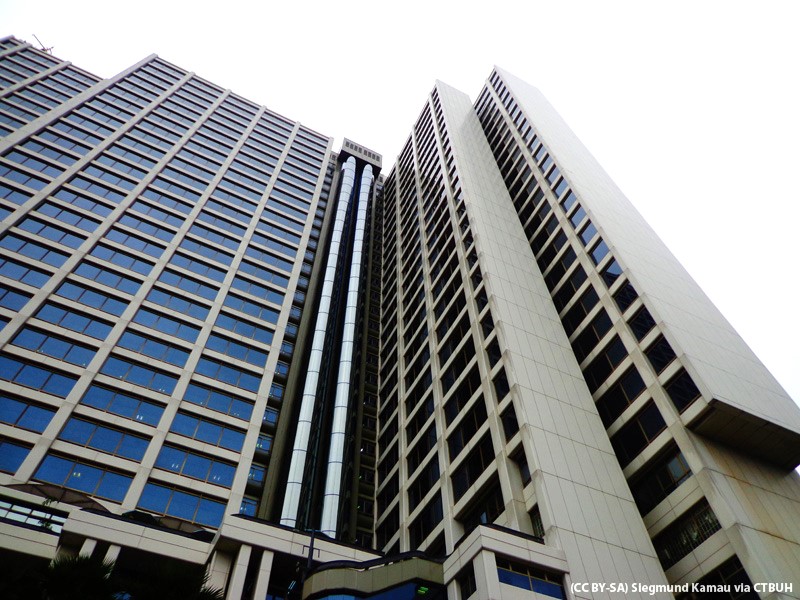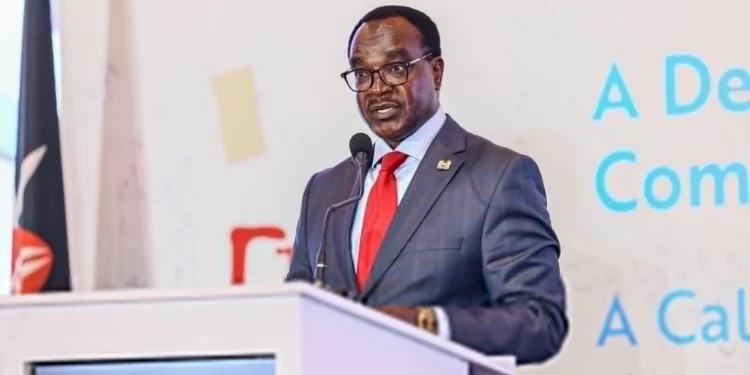Delegates at the on-going international conference on science and technology being held at the Mount Kenya University (MKU) in Thika town yesterday settled down to serious, topical discussions on matters affecting Africa and the world and the need for nations to facilitate research.
The second day of the 8th International Interdisciplinary and Inter-Universities Consortium –Africa Conference 2023 saw delegates engage on diverse multidisciplinary issues ranging from the need to focus on Science Technology and Innovation (STI) as the driving discussion for attaining Vision 2030 and Africa Union Agenda 2063 objectives.
The conference has brought together stakeholders from academia, public and private sectors to discuss strategies to entrench peace, security and socio economic development. MKU and Vincent Pol University of Poland have organised the three –day meeting which ends tomorrow.
Other collaborators are Kyambogo University of Uganda, Chukwuemeka Odumegwu Ojukwu University (Nigeria), University of Makeni (Sierra Leone) and Kenya’s University of Eldoret. All five African universities are members of the Inter-University Consortium Africa which is dedicated to the advancement of the theory and practices in knowledge and technological innovation.
“As a consortium, we laud the high number of delegates who have attended the conference so far, and their contribution in underscoring the importance of STI in promoting food security, entrenching peace and promoting problem-based innovations with industry,” said Dr Henry Yatich. The don is the chairman of the organising committee of the conference and Acting Principal, College of Graduate Studies and Research at MKU,
The Kenyan Government was called upon to consider increased financial allocation to research activities in the country through the National Commission for Science, Technology and Innovation (NACOSTI). This was noted as lessons learnt from most countries in Europe and Americas who have allocated significant amounts of their national budgets to problem-based research that have led to innovative products, and processes that can address socio-economic and socio-political challenges of our times.
“Science, technology and innovation (STI) are key drivers of economic and social development, and are hence a critical means of implementation for national agenda,” said the Chief Executive Officer of NACOSTI, Prof. Walter O Oyawa, who is the chief guest at the conference.
Prof Oyawa said Covid 19 pandemic has reaffirmed the vital role of research, science, technology and innovation (research systems) as a global public good, for a strengthened national security, enhanced public safety/health and inclusive sustainable development. “Effective public-private knowledge transfer is more crucial to innovation than ever in the aftermath of COVID-19 crisis,” he said.
“STI diplomacy is a key component of the national development agenda,” added Prof Oyawa.
Collaboration among Higher Education Institutions in Africa and beyond was considered a key strategy to promote cross national and continental boundaries, so that resources can be pooled to support similar conferences and collaborative research initiatives. “There is a need for a framework to evaluate knowledge transfer practices, improve knowledge transfer metrics and evaluation frameworks, and offer policy lessons,” said Nacosti CEO.
The conference ends on March 31, it is being held under the theme, Participatory Leadership, Innovation and Knowledge Transfer for Sustainable Economies. Four hotels in Thika town (Paleo, Maxland, St Luke Cravers and Eton) have offered subsidised accommodation for our delegates and many other hotels are available in Thika town.
Dr Yatich said as the conference draws to an end, the panel discussions will yield significant ideas and knowledge that can be borrowed by the participating nationals from different nations, thus informing their own research process and solutions to challenges witnessed in our modern economies. The venue of the meeting is the Mwai Kibaki Convention Centre at MKU’s main campus.
“In addition, the conference sessions have also revealed the need for technologically- led innovative approaches to solve the challenges of food insecurity in Africa as this is one of the backbone economic activities that promotes improved livelihoods and healthy living,” added the chairman.
During the opening session on Wednesday, MKU co-founder Dr Jane Nyutu welcomed the delegates on behalf of MKU Founder, Prof. Simon Gicharu and the board of directors and wished them a successive forum with useful findings. She said through teaching, research and community engagement has led to MKU’s award to serve for three years as the United Nations Academic Impact for SDG No. 10 on Reduced Inequalities.
“This allows us to partner with many universities, with the industry, and with practitioners in all areas that are of positive impact to human life; namely, medicine, animal health and production, education, social and physical sciences, and so on. Thus, in a collaborative effort, the communities across the world will very well benefit from the joint activities of our deliberations during this conference,” she said.
By James Wakahiu
Get more stories from our website: Education News
You can also follow our social media pages on Twitter: Education News KE and Facebook: Education News Newspaper for timely updates.





